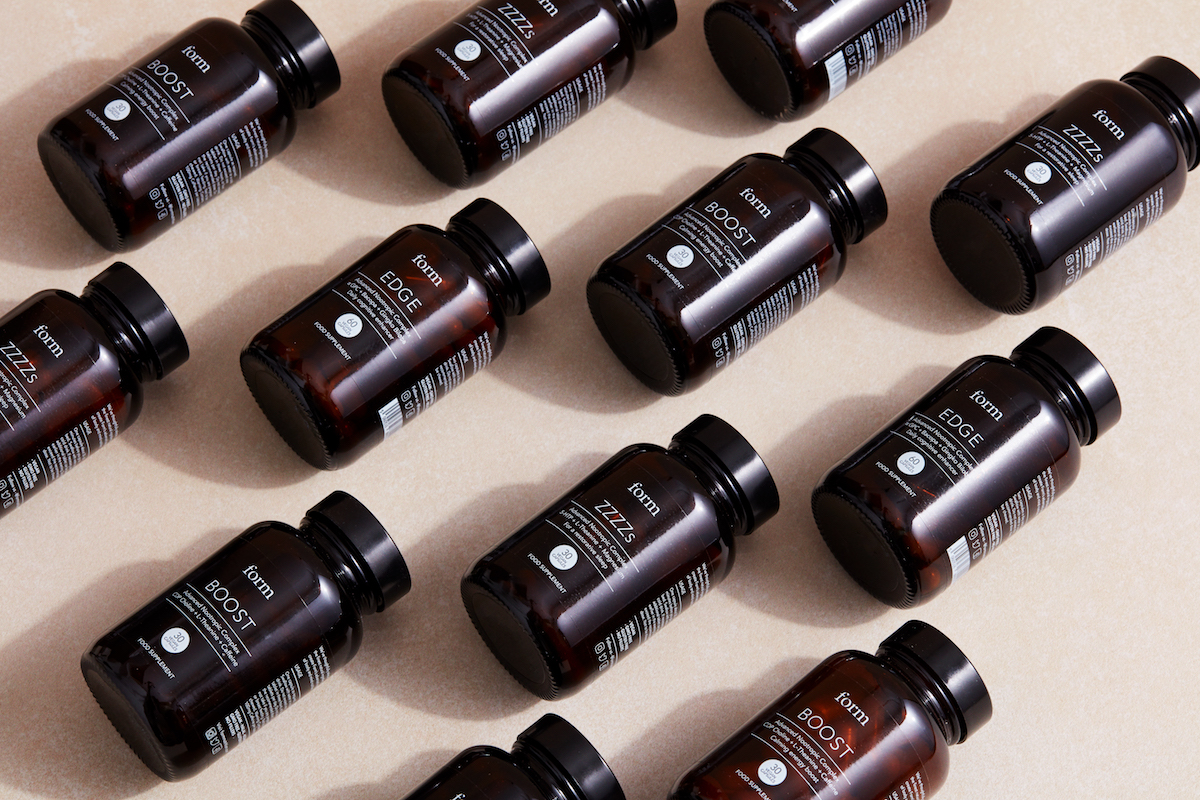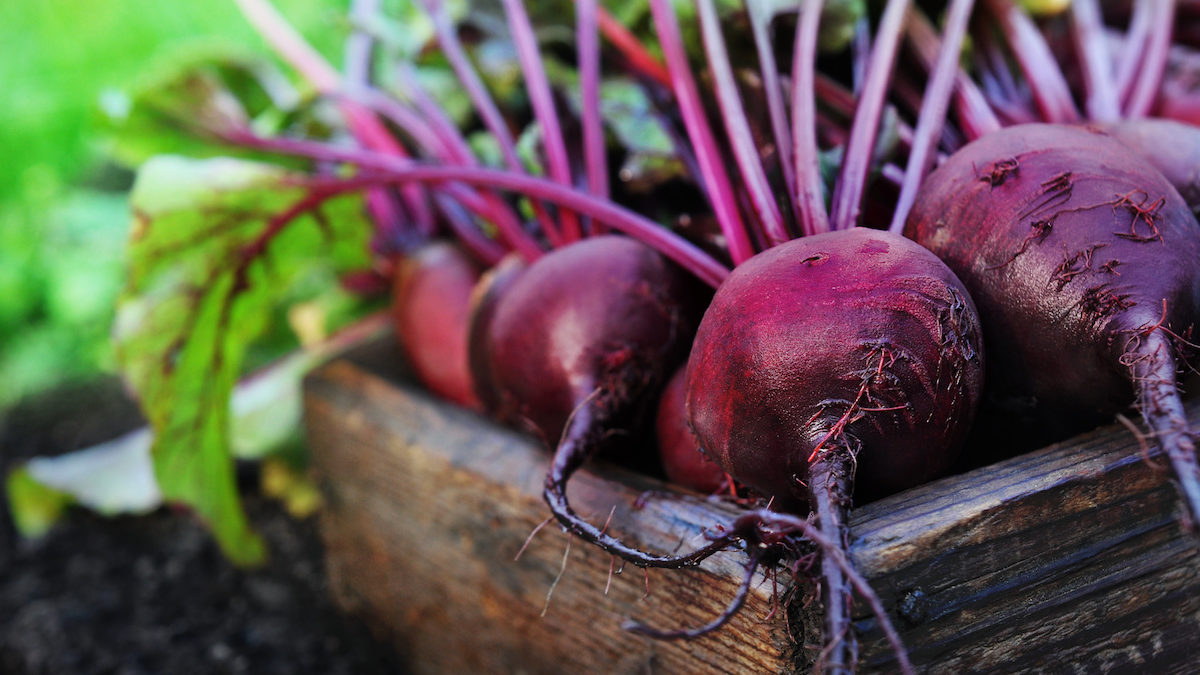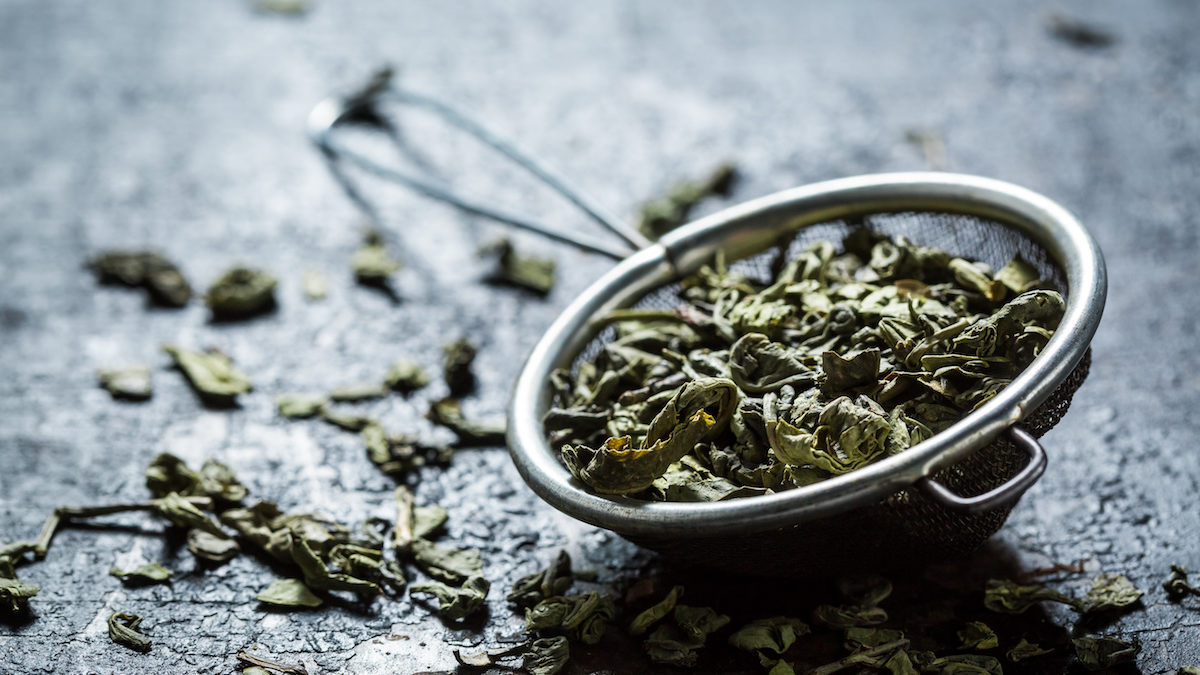What on Earth Is a Natural Nootropic, and How Do They Actually Work?

Derived from the Ancient Greek word nóos meaning ‘mind’, nootropics might have a peculiar name, but when it comes to improving your cognitive function (your ability to think, basically) they’ve got their head firmly in the game.
Put simply natural nootropics are substances, or nutrients that affect mental performance. While they might have become somewhat of a buzz word in the health and fitness industry in recent years, they’ve been used for thousands of years in both Chinese medicine and Ayurvedic healing.
Commonly referred to as smart drugs, there’s a certain stigma around the ‘d’ word that might have people worried unnecessarily. But the chances are most of us will have already taken a natural nootropic in some form or other.
“Before you say “I would never take something like that’ as you read this with your morning latte, remember that tea and coffee are the most commonly consumed natural nootropics in the world,” points out Sarah Carolides, nutritionist at Third Space London and Harvey Nichols.
Nootropic substances exist in many of our everyday foods too, as well as more exotic supplements with fantastical names like Lion’s Mane and Ginkgo Biloba that you can buy at your local health store.
Keen to find out more? Well, to help you answer any burning questions you may have about these cognitive enhancers, we’ve called on Carolides’ expertise to put together a natural nootropics manual. From how your body metabolises nootropics to some easy ones to get you started, this guide will help your brain fire on all cylinders in a safe and natural way.

Sarah Carolides via Third Space
Are Nootropics Safe?
It’s the question most people go to first when discussing nootropics, and for good reason. Well-known synthetic nootropics like Adderall and Ritalin are prescribed for the treatment of ADHD, but are commonly misused for recreational purposes. And what about natural nootropics that don’t require a prescription?
“[They’re safe] up to a point,” notes Carolides. “Something that has added a new dimension to the science is the rise in knowledge about genetics. For instance, if we use caffeine as an example again, caffeine works by blocking certain receptors in the brain, so you feel less tired. However, the rate at which the caffeine is metabolised away by the body will depend on your genetic makeup.”
Carolides points towards one gene, CYP1A2, as a potential stumbling block. “This gene determines whether you metabolise caffeine quickly, or slowly. If you are a fast metaboliser, you can have several cups a day and enjoy the stimulation with no adverse effects.
“If you’re a slow metaboliser however, you cannot tolerate caffeine after about midday unless you want to stay up all night. And more importantly, more than a couple of cups a day can seriously affect your heart health. It’s probably best then if you use something else to wake you up.”

Natural Nootropics Vs. Synthetic Nootropics
This genetic ability to metabolise substances also applies to synthetic nootropics. “The way we metabolise any substance depends on our genes being able to produce the enzymes that deal with it,” says Carolides. “So it’s hard to say definitively whether natural versions are safer than synthetic counterparts unless you know exactly how well the individual can deal with each substance genetically.
“Having said that, the rise in the use of synthetic nootropics, especially amongst students for cognitive enhancement should be considered a serious health problem as there is very little information about the risks and potential long term adverse effects, especially for drugs such as methylphenidate [aka Ritalin].”
The originator of the term nootropic, chemist Corneliu E. Giurgea argued that a nootropic by its definition must have no side effects. This takes synthetic drugs such as Ritalin out of the equation based on past studies which have linked it to insomnia, hallucinations, seizures, heart trouble, and sudden death.
In contrast, a 2017 systematic review of 400 studies found that healthy adults who consumed up to 400 mg of caffeine per day did not experience adverse effects. As Carolides mentioned previously though, it’s important to proceed with relative caution and stop consumption if you have an adverse affect to anything.
Why Should You Take Natural Nootropics?
“Genetics aside, natural nootropics can have benefits both in the short term and the long term,” notes Carolides. “One of the largest benefits away from cognitive functioning is in the adaptive stress response. Some of these compounds can enhance the ability of the brain to resist severe or chronic stress, which can help reduce inflammation and all the health issues that arise from it.
“In the long term, there is now a good body of evidence that proves the long term use of several food-based nootropic agents that can either mitigate or even possibly reverse age-related cognitive decline.”
For example, numerous studies have linked flavonoids, a diverse group of phytonutrients (plant chemicals) found in almost all fruits and vegetables, with improved cognitive health. Beetroot, berries and spinach are three examples particularly rich in flavonoids.

And it’s not just our brainpower that nootropics can have a profound effect upon. Carolides points out that nootropics can also help us out in a couple of ways while exercising too.
“Firstly, by reducing fatigue which can allow you to work out ‘longer and stronger’ and secondly, nootropics can help dampen the increase in cortisol that results from intense or prolonged exercise. Cortisol is a catabolic hormone, which means it decreases lean body and muscle mass so keeping it low can help maintain muscle gains.”
A Note On Nootropic Stacking
An increasingly popular way to take supplements within the growing nootropics community is to consume the nootropics as a stack; the nootropics subreddit has 221,000 members and counting, while a group that solely focuses on nootropic stacks has 33,000.
In layman’s terms, a nootropic stack is when you take two or more nootropic supplements and put them together to create a combined effect on your cognition that is greater than just taking one on its own. When it comes to stacking, Carolides’ advice is to proceed with caution.
“Nootropic stacking should always be practised under guidance. This is especially true if synthetic nootropics are being used. With natural nootropics, if you don’t have time to put in the research, buying a pre-formulated compound is advisable and probably safer.
“Perhaps the most important thing to remember is that even the most advanced nootropic stack will never counter the effects of a poor diet. If you’re spending money on Lion’s Mane and Bacopa, but eating processed meats and no vegetables, you will never achieve the goals you’re looking for.”
As another aside, exercise can also be somewhat under-rated when it comes to boosting our brainpower. A 2017 study from the American College of Sports Medicine found that older adults who took part in high amounts of physical activity had a 36 percent lower risk of cognitive impairment, as well as better memory and executive function. So, perhaps the best nootropic stack you could take would be to combine a regular exercise regime with any one of the options below.
Four Natural Nootropics To Get You Started
Caffeine & L-Theanine
An amino acid naturally found in tea, research around the use of L-Theanine as a single ingredient tend to promote it’s relaxation properties. However, there are a number of studies that are positive about its effect on cognitive performance and alertness when it has been stacked with another natural nootropic, caffeine. The stimulant is balanced out by the calming amino acid and can prevent the headaches and jitters some people may get from caffeine consumption.

Lion’s Mane
Thankfully no lions are harmed in the production of this nootropic. Rather Lion’s Mane refers to a hair-like fungus that grows mostly around American beech trees. It sort of looks like a tassel crossed with a Moomin, and is commonly consumed as an extract in supplement form.
“I am a huge fan of Lion’s Mane,” says Carolides. “It supports cognitive function, memory loss and the gut. One factor we haven’t mentioned is that if the gut function is compromised, the effects of any of the nootropics may be reduced.
“Lion’s Mane can help support regeneration of both nervous tissue and the gastric lining. Again, it can take three months to show any effects, although most of my clients report improvements in a much shorter time frame.”

Bacopa Monnieri
“Bacopa monnieri is a traditional Ayurvedic herb that can help enhance memory and brain function through several pathways,” explains Carolides. “The increase of acetylcholine, increasing brain blood flow, inhibiting inflammatory pathways, decreasing beta-amyloid growth, and several others.
“It does this by containing several different nootropic phytochemicals called bacosides. Although long-term clinical human studies are lacking, there is enough evidence to verify the effect of Bacopa on boosting attention, cognitive skills, and improved working memory. However, it can take up to 12 weeks to take effect. The normal dosage is between 300-1000 mg per day.”
A recent study from 2020, also found that compounds within Bacopa have the potential to help treat and regulate the various biological processes of some neurological diseases, including Alzheimers. This could then pave the way for its use beyond current means and into medicines for the treatment of these illnesses.

You can find out more about Sarah’s work at sarahcarolides.com or follow her on Instagram @sarahcarolidesnutrition


















